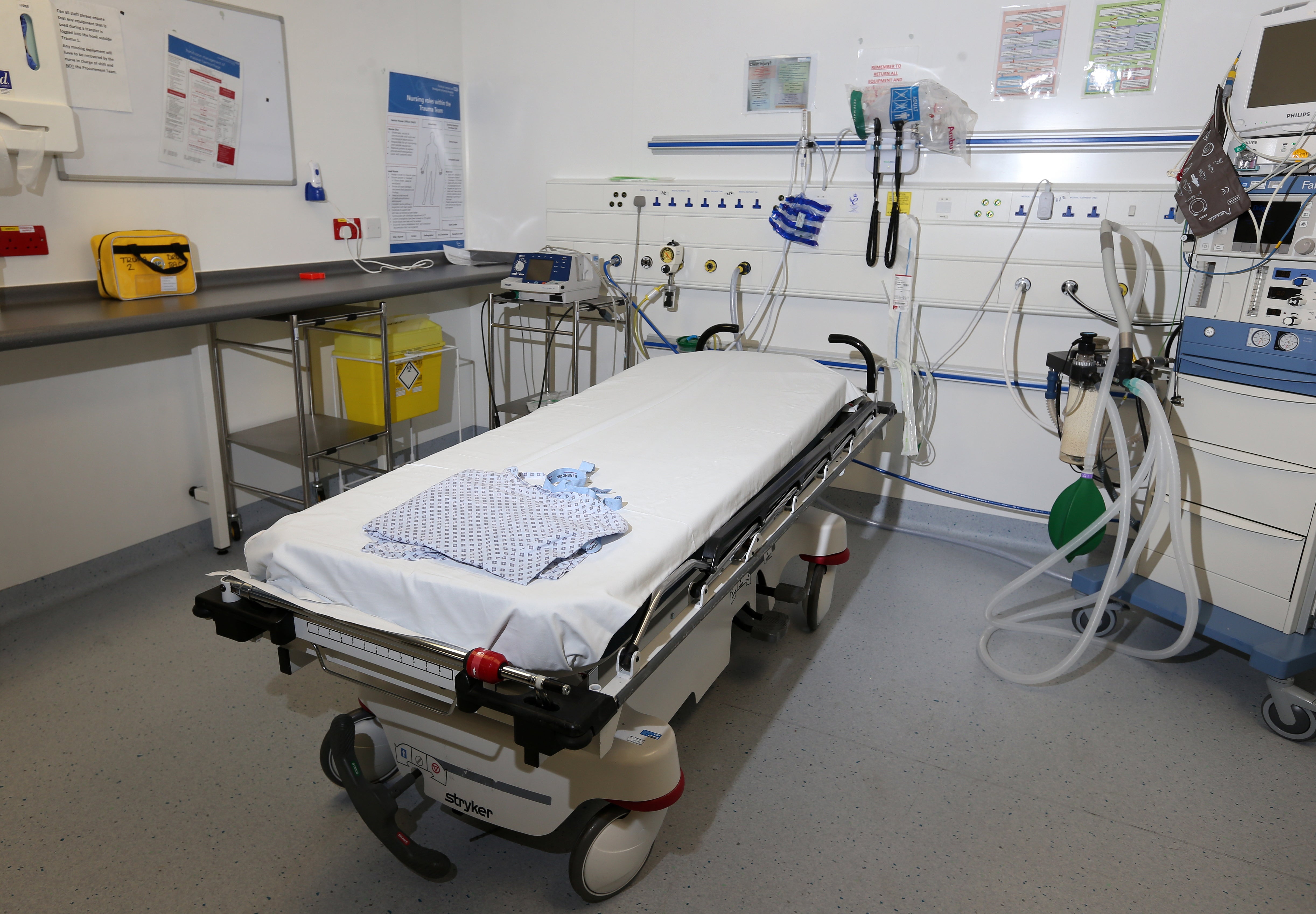Hospitals to use spare capacity in private sector in new deal struck with NHS amid Omicron wave
NHS England said patients who can be referred to private firms under the deal include some of those waiting for cancer surgery

Your support helps us to tell the story
From reproductive rights to climate change to Big Tech, The Independent is on the ground when the story is developing. Whether it's investigating the financials of Elon Musk's pro-Trump PAC or producing our latest documentary, 'The A Word', which shines a light on the American women fighting for reproductive rights, we know how important it is to parse out the facts from the messaging.
At such a critical moment in US history, we need reporters on the ground. Your donation allows us to keep sending journalists to speak to both sides of the story.
The Independent is trusted by Americans across the entire political spectrum. And unlike many other quality news outlets, we choose not to lock Americans out of our reporting and analysis with paywalls. We believe quality journalism should be available to everyone, paid for by those who can afford it.
Your support makes all the difference.Hospitals will be able to use spare capacity in the private sector under a new deal struck with the NHS, while hospitals have been told to find extra beds.
The three-month agreement, for an undisclosed sum, will see private healthcare staff and facilities put on standby to support the NHS should Covid cause unsustainable levels of hospital admissions or staff absences.
There are no routine figures for how many doctors and nurses from the NHS also work in private hospitals.
In the announcement, NHS England said the patients who can be referred to private firms under the deal include some of those waiting for cancer surgery.
The NHS has also been asked to look at using spare capacity in gyms and education centres to create “super surge” wards on top of their usual surge capacity.
Nightingale hubs are already being created in the grounds of some hospitals as part of a move to find up to 4,000 extra beds.
Health and Social Care Secretary Sajid Javid said: “NHS staff continue to go above and beyond to ensure people get the treatment they need this winter and our support for the NHS through this challenging period remains at full throttle.
“This agreement demonstrates the collaboration across our health care services to create an additional safeguard that ensures people can continue to get the care they need from our world-leading NHS, whenever they need it.
“I encourage everyone to keep doing their bit to look after themselves and their loved ones and, most importantly, for all those eligible, to get boosted now.”
According to NHS England, more than 470,000 NHS day cases, almost 2.8m surgical procedures and more than 500,000 diagnostic tests have been carried out in the private sector in the last year.
The Health Service Journal (HSJ) reported that about two-thirds of the private sector capacity block-purchased by the NHS went unused by the service between June and the end of September 2020.
The arrangements will also provide the NHS with additional targeted support in the event that local NHS pressures are deemed as unsustainable
The new agreement will run until the end of March 2022 and includes the following private providers: Practice Plus Group, Spire Healthcare, Nuffield Health, Circle Health Group, Ramsay Health Care UK, Healthcare Management Trust, One Healthcare, Horder Healthcare, Aspen Healthcare and KIMS Hospital.
NHS Providers chief executive Chris Hopson said: “The NHS is working beyond full stretch so it makes sense, when required, to draw on additional capacity from the independent sector.
“However the supply of staff is finite and it is important that this deal does not exacerbate existing severe staffing pressures for trusts.
“It should be seen alongside other steps to prepare for the impact of Omicron at a time when the NHS is also dealing with so many other pressures.
“The priority for trusts is to minimise delays and maintain the quality of care for NHS patients.
“This has required increased collaboration and support with partners including the independent sector exactly as we saw earlier in the pandemic.”
David Hare chief executive of the Independent Healthcare Providers Network (IHPN), said: “Independent sector providers have worked shoulder to shoulder with the NHS throughout the pandemic, playing a key role in enabling vital NHS care including cancer and cardiology treatment to continue, whilst also maintaining services for private patients.
“The arrangements being announced today, in response to a call by Government and the NHS for further independent sector support during the Omicron wave of Covid-19, will help to bolster planned NHS care including cancer treatment this winter whilst ensuring that independent sector providers can continue to treat private patients.
“The arrangements will also provide the NHS with additional targeted support in the event that local NHS pressures are deemed as unsustainable.”
NHS England chief operating officer and Covid incident director Sir David Sloman said the new deal “means as many people as possible can continue to get the care they need.”